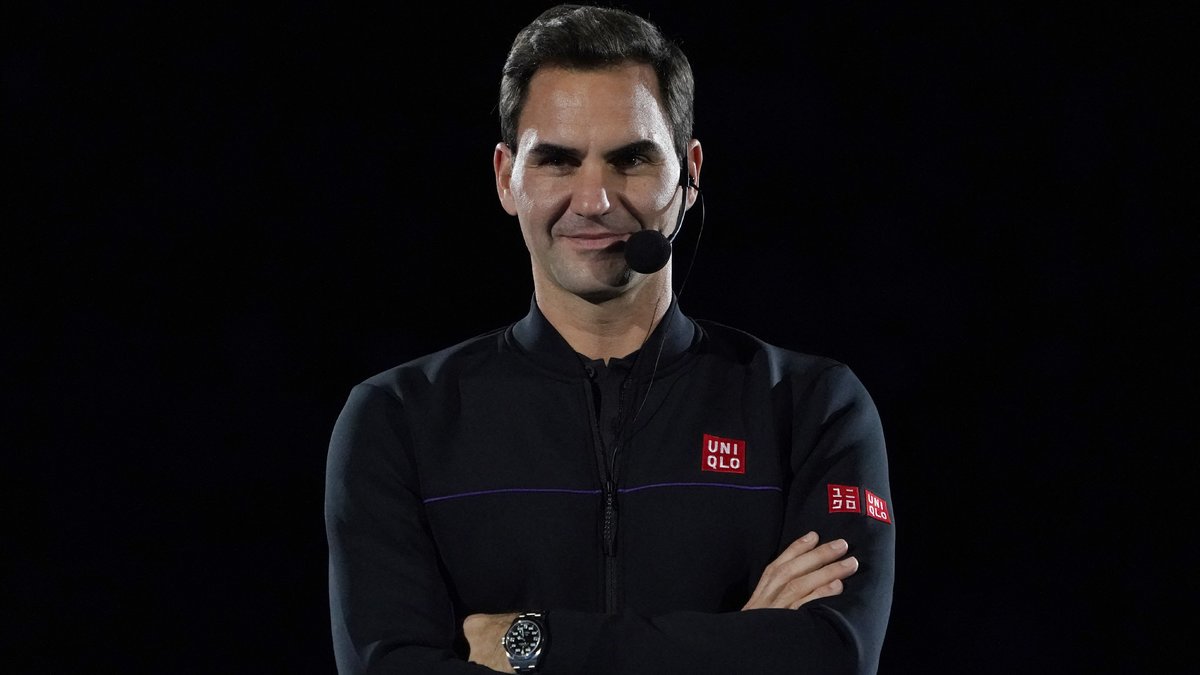Cancer is perhaps the scariest disease. Their psychological impact it is terrible, both for those who suffer from it and for those close to them, and this in spite of it many affected recover or survive the disease for decades. The figures speak for themselves: in 2020, more than 18 million people were diagnosed with cancer and 10 million died of cancer.
The bad thing is that there are more and more cases, and the forecasts place in 27 million the number of new diagnoses in 2040. But the bad news doesn’t end there. A team of researchers at the Harvard University School of Public Health reviewed data on cancer worldwide, collected by the World Cancer Observatory –globecan-, and found an increase in cases among those under 50, an age in which there is still a long life ahead of them.
Cancers that are increased in young people are breast, colon and rectum, endometrium, esophagus, bile duct, gallbladder, head and neck, kidney, liver, bone marrow, pancreas, prostate, stomach and thyroid
The authors, led by epidemiologist Tomotaka Ugai, of Harvard Medical School and Brigham and Women’s Hospital, identified the 14 types of cancers on the rise among young people: breast, colon and rectum, endometrium, esophagus, extrahepatic bile duct, gallbladder, head and neck, kidneys, liver, bone marrow, pancreas, prostate, stomach and thyroid. And qualify for “early-onset cancer epidemic” this situation that “could be the tip of the iceberg of an increasing trend of many chronic diseases in younger or future generations”, as they write in their ItemPosted in Nature Reviews Clinical Oncology.
What is happening?
The work shows that the increase in cancer incidence is increasing every decade; Thus, there were more cancers in 1960 than in 1950, though the increase has skyrocketed since 1990. Ugai’s group discovered that the exposome – the set of factors to which a person is exposed throughout his life and which influence his health, in the first years of life, including diet, lifestyle, weight, environmental exposures and an individual’s microbiome – has changed substantially over the last few decades. Thus, Western diet and lifestyle may contribute to the increase in early-onset cancer.
Pollution in Mexico City. (EFE/Mario Guzman)
Also, early diagnosis through cancer screening programs It can also influence this increase in cases.
Potential risk factors for early onset cancer include alcohol consumption, lack of sleep, smoking, obesity and a diet rich in highly processed foods.
“Of the 14 rising cancer types we studied, eight are related to the digestive system. The food we eat feeds the microorganisms in our gut,” says Tomotaka Ugai. “Diet directly affects the composition of the microbiome, and ultimately these changes can influence disease risk and outcomes.”
:format(jpg)/f.elconfidencial.com%2Foriginal%2F690%2Ff7d%2F5c0%2F690f7d5c056626da8a51e8520bbb5f9e.jpg)
The microbiota brings good news for colon cancer
A. Gomez
On the other hand, the obesity and lack of physical activity favor the appearance of breast and endometrial cancer.
Faced with evidence that Western lifestyles are behind this rise in cancer, Harvard researchers insist on the need to health authorities implement strategies to improve nutrition from childhood, from taxes to sugary drinks to education. They also claim to act on the environment.
This is Spain
Experts consulted by El Confidencial also confirm this increase in cases among people under 50, but with nuances. “In the clinic, we have a feeling that there is more cancer in young people, but Cancer registries in Spain are not good. In any case, the increase is slight, but maintained over time”, says the doctor Pedro Perez Segurahead of the medical oncology service of the San Carlos clinical hospital.
The messages about prevention have reached the population, who turn to the doctor when they notice something abnormal that wasn’t there before
As the authors of the article Nature Reviews Clinical Oncology, points out that the cause is multifactorial and loads the inks on poor eating habits, tobacco use, pollution and other lifestyle habits. They also affect “messages to the population with the surveillance for preventionwho have encouraged that when someone notices something abnormal, they go to the doctor” and, probably, “tumors are diagnosed more frequently than they have been diagnosed before,” says Pérez Segura, who is also a patron of ECO Foundation .
The doctor Enriqueta Philip, President of the Spanish Society of Medical Oncology (I am here), confirms this increase in cases in our country, an increase that “between 2020 and 2040 will be 50% and a significant percentage will correspond to young patients”.
:format(jpg)/f.elconfidencial.com%2Foriginal%2Fc1c%2F1be%2F0fe%2Fc1c1be0fe8e0265c06da2a8cbc1448d3.jpg)
The seven types of cancer you can avoid with 2.5 hours a week of exercise
angeles gomez
Felip assures that the increase in the incidence of cancer “is a reality that we have known for some time, as well as the increase in the younger population”, and attributes it to the fact that “every time we know more data on the potential role of different risk factors or screening programmes”. In any case, he reiterates that “it is unquestionable that the changes that have taken place in our lifestyle in recent decades (increased obesity, sedentary lifestyle, adoption of western food styles, declining birth rate e Breastfeeding) are having an impact on this increase in incidence at a young age.
Digestive and gynecological tumors
The Harvard report includes several digestive tract cancers. The doctor Luis Bujandaresponsible for the area of liver and gastrointestinal diseases of the Biodonosty of the ISSalso confirms, on a general level, the increase “especially in colon and liver cancer”. But “the majority of cases, more than 90%, continue to occur in people over the age of 50.”
Intestinal injuries. (Stock)
The professor also at the University of the Basque Country believes that the The most important factor in early-onset cancer is “overweight and obesity -more than 15% of our children are obese and 50% of our population is overweight or obese- and the decrease in physical exercise”.
And about gynecological tumors, the doctor Jesus Jimenezpresident of Andalusian Society of Gynecology and Obstetricspoints out that “the The average age at which breast cancer appears is 63 years.”, and in young women, under 40, the risk increases if there is some type of genetic component”. To some extent, it demystifies that breast cancer is more aggressive in young women, what happens is that “80% of women under 40 feel a mass, and this usually corresponds to more advanced stage cancers” .
The gynecologist confirms that “lifestyle factors, such as high caloric intake, consumption of alcohol or tobacco, can affect the risk of breast cancer and, at the same time, all can be changed in our population and, therefore , the incidence of breast cancer may have changed in recent years”.
More than 75% of women diagnosed with endometrial cancer were obese (BMI greater than 30) before the age of 25
Like the other specialists, Jiménez points out to environmental pollutantsthat “they have changed over time, and this could be another cause of this increase in previous cancers, but the truth is that there are very few publications on the subject, so this could be another possibility.”
On him endometrial cancer, the head of the Gynecology Service of the Regional Hospital of Malaga also appeals to a study that showed that “more than 75% of women diagnosed with endometrial cancer are obese before the age of 25 (MI greater than 30). Other factors that increase the risk of this malignancy are having the first birth after 30 yearshigh glycemic index diets, diets high in saturated fat and pro-inflammatory diets.
Conversely, the physical activity is associated with a lower risk of endometrial cancer.
The best to prevent
To reverse this trend, all the experts insist on adopting, since childhood, a healthy lifestyle, favoring the Mediterranean diet and physical activity. The president of SEOM insists on the fact that “early exposure to these risk factors related to lifestyle (obesity, diet, physical inactivity, consumption of processed meats, sugary drinks, alcohol…) triggers the mechanisms of carcinogenesis and the development of tumors at an earlier age than observed a few decades ago. we can’t forget it 1 in 3 cancer deaths are due to preventable risk factors and that, therefore, we can act to reduce that risk”.
The best prevention is a healthy life from childhood. (Stock)
The spokesman of the Fundación ECO underlines the importance of screening programs, such as the detection of colon cancer with the fecal occult blood test“a very cheap test, only one euro, but with enormous advantages”. If the test is positive, a colonoscopy is done to check for cancerous lesions.
Likewise the mammography screening they are very helpful for breast cancer.
For years there have been voices asking lower the starting age of these screenings population (under 50); however, Pérez Segura defends strategies aimed at “better define individual risk and don’t give everyone chocolate, because this sometimes gives the impression that some prevention programs are not helpful, since we are mixing high-risk patients with population-risk patients and that is why, sometimes, the studies are not useful”.
“We can’t talk about an epidemic, there is a sustained increase in cases in people under 50, but talking about an epidemic is very sensationalist”
Undoubtedly the report from Harvard University doctors is worrying, but from there to say that there could be a early-onset cancer epidemic there is a sudden Pérez Segura states that “we cannot speak of an epidemic, it seems to me a very strong word. I think there is a sustained increase in cases in people under 50, but not an epidemic. It’s a very sensationalist term.” He’s more in favor of softer messages: “For people to join the prevention programs must be convinced, not frightened”.
In the absence of new studies that better clarify what accounts for the increase in cancers in people under 50, doctors agree that prevention, with healthy eating and exercise from childhood, is the best shield against cancer.
:format(jpg):quality(99):watermark(f.elconfidencial.com/file/6fe/9f8/aff/6fe9f8affe583116fd468a903c287c44.png,0,275,1)/f.elconfidencial.com/original/e34/033/1ef/e340331ef91e48cc958433c9ade435fd.jpg)

